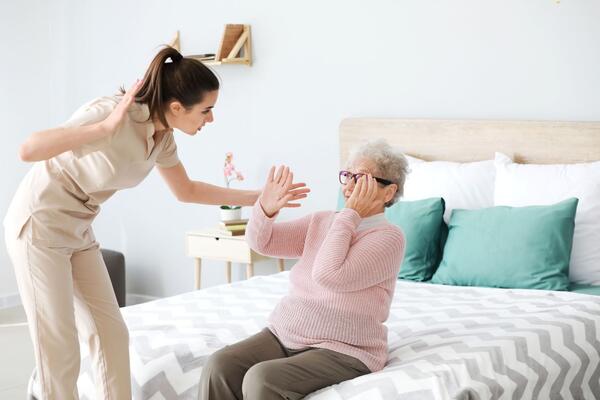
How To Report Abuse In Nursing Homes: A Family's Guide
Placing a loved one in a nursing home is a decision often filled with hope for their safety and well-being. These facilities are entrusted with providing compassionate, professional care to some of society’s most vulnerable members.
When that trust is broken due to suspected abuse or neglect, families can feel overwhelmed, heartbroken, and uncertain about where to turn. Recognizing the signs and understanding the proper channels for reporting can be critical in protecting residents and ensuring they receive the dignity and care they deserve.
Read on to learn how to report abuse in nursing homes.
Recognizing the Signs of Nursing Home Abuse and Neglect
The first challenge many families face is identifying potential mistreatment, as abuse isn’t always physical and victims may be unable or afraid to speak out. Awareness of the various forms of abuse is essential for early intervention. These include:
- Physical Abuse: These involve unexplained injuries such as bruises, burns, cuts, or fractures, signs of restraint like marks on wrists; broken eyeglasses, and a caregiver’s refusal to allow private visits with the resident.
- Emotional or Psychological Abuse: These include witnessing a caregiver yelling, threatening, or belittling a resident. The resident may exhibit uncharacteristic behaviors like rocking back and forth, mumbling to themselves, or appearing withdrawn or fearful around staff members.
- Sexual Abuse: These involve bruises around the breasts or genital area, unexplained sexually transmitted diseases, and bleeding from the vagina or anus; and torn, stained, or bloody underclothing.
- Neglect: This is the failure to provide necessary care, often resulting in bedsores, dehydration, malnutrition, poor personal hygiene, unsanitary living conditions, and unattended medical needs.
- Financial Exploitation: This involves sudden changes in banking practices or wills, unexplained withdrawals of large sums of money, the disappearance of personal belongings, and unpaid bills despite adequate financial resources.
When evidence suggests that a facility has been grossly negligent or intentionally harmful, consulting a nursing home abuse lawyer can be a crucial step in understanding legal rights and options for seeking justice and compensation.
Immediate Actions to Ensure Safety
If a loved one is in immediate, life-threatening danger, calling 911 is the first and most critical step. For situations that aren’t imminently life-threatening but still raise serious concern, the following actions are recommended:
Ensure Immediate Medical Attention
If the resident has any injuries, seeking medical care from an independent physician is important. This documents the harm and prioritizes the president’s health.
Document Everything
Families should meticulously record all details and take date-stamped photographs of any visible injuries or unsanitary conditions. Writing down the president’s own account of what happened, using their exact words if possible is also crucial. Families are advised to note the names of staff members involved and any witnesses.
Notify the Facility Administrator
Families should schedule a formal meeting with the nursing home’s director or administrator. Presenting documented evidence and expressing concerns in clear, factual terms is also critical. Families should also request a written copy of their internal incident report and action plan to address the issue.
The Formal Reporting Process
While notifying the facility is important, it’s not a substitute for official reporting to state and federal agencies tasked with oversight. These external reports can trigger investigations that can lead to corrective action, fines for the facility, and broader systemic change. Here’s the formal reporting process to consider:
Report to the State Survey Agency
Every state has an Adult Protective Services (APS) agency and a Long-Term Care Ombudsman program. These are the primary entities responsible for investigating allegations of abuse and neglect in nursing homes.
APS specializes in investigating reports of abuse, neglect, and exploitation of vulnerable adults. They have the authority to conduct investigations and intervene to protect the residents.
On the other hand, long-term care ombudsman is a federally mandated, state-operated program which advocates for residents’ rights. Ombudsmen are trained to resolve problems and can be powerful allies in addressing complaints without immediate litigation. Reports can typically be made anonymously.
Report to the Local Law Enforcement
Abuse can constitute a criminal act. Contacting the local police department to file a report is appropriate, particularly in cases of physical assault, sexual abuse, or major financial theft. A police report can create an official record and lead to a criminal investigation.
Report to State Licensing Boards
If the abuse involves a specific licensed professional, such as a nurse or a nurse’s aide, a report can be filed with the state’s professional licensing board. This board can investigate and sanction the individual, including revoking their license.
Report to Federal Agencies
For facilities that receive Medicare or Medicaid funding (which most do), reporting to the Centers for Medicare & Medicaid Services (CMS) is also an option. CMS can work with state agencies to ensure facilities comply with federal standards.
Following Up and Seeking Further Recourse
It’s essential to follow up after a report is filed and request a copy of the agency’s investigation findings. Further action may be necessary if the investigation confirms abuse or the facility fails to correct the problems.
Furthermore, families have the right to move their loved one to a safer facility. They may also choose to pursue a civil lawsuit against the nursing home. Such legal action can secure financial compensation for the victim’s medical bills, pain and suffering, and other damages while also holding the facility accountable and prompting changes that protect future residents.
Conclusion
Discovering that a loved one may be suffering in a nursing home is a profoundly distressing experience. However, by keeping the information mentioned above in mind, families can become powerful advocates. Their actions can help protect their family members and contribute to a culture of accountability and higher standards of care for all nursing home residents. Vigilance and a willingness to act are the strongest defenses against abuse.